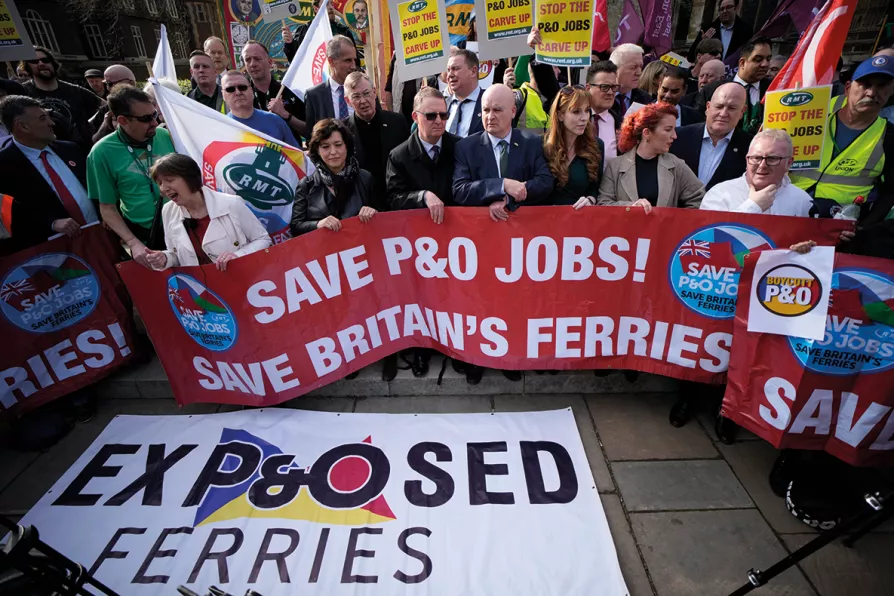The language of humiliation is a step towards a second civil war, argues RAMZY BAROUD

 EXPLOITATION AHEAD: Outrages like the P&O scandal are a taste of what employers will attempt if unencumbered by our hard-won workplace rights
EXPLOITATION AHEAD: Outrages like the P&O scandal are a taste of what employers will attempt if unencumbered by our hard-won workplace rights
THE Retained EU Law (Revocation and Reform) Bill will scrap over 2,400 pieces of EU legislation currently transposed into UK laws as part of the government’s “Brexit dividend.”
The Bill will, if implemented, wipe out hard-won employment rights that are incorporated into many union agreements and workers’ contracts.
The TUC says the Bill “will cause enormous confusion and chaos for working people and their employers at a particularly difficult time for the economy, and poses a significant threat to workers’ rights. The Bill, if enacted, will sweep away thousands of pieces of legislation and upend decades-worth of case law.”

Labour’s long-promised Act has scraped through the Lords. While the law marks a step forward, its lack of collective rights leaves workers short-changed — and sets the stage for a renewed campaign for an Employment Rights Bill #2, argues TONY BURKE

It is only trade union power at work that will materially improve the lot of working people as a class but without sector-wide collective bargaining and a right to take sympathetic strike action, we are hamstrung in the fight to tilt back the balance of power, argues ADRIAN WEIR

TONY BURKE says an International Labour Conference next month will try for a new convention to protect often super-exploited workers providing services such as ride-hailing (taxis) such as Uber as well as fast food and package delivery











